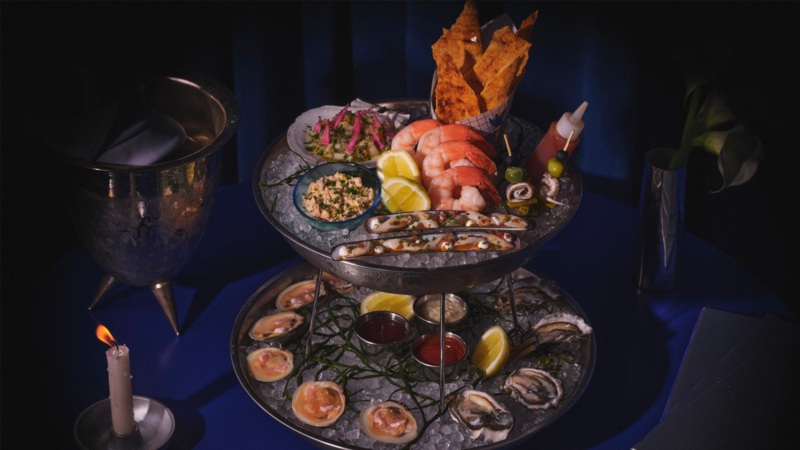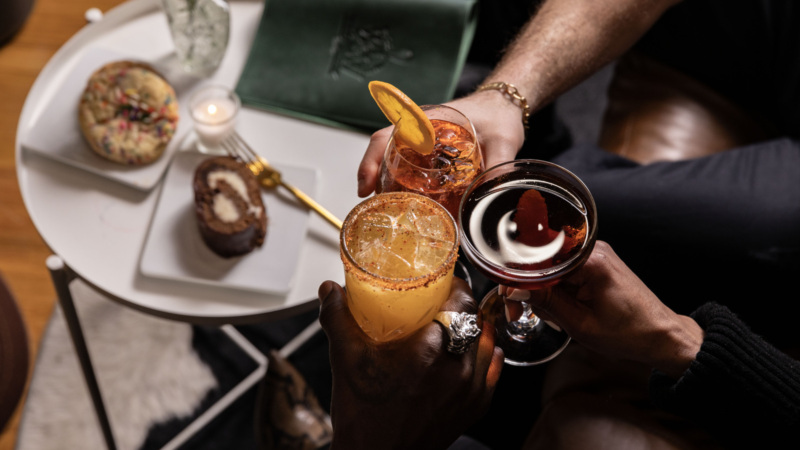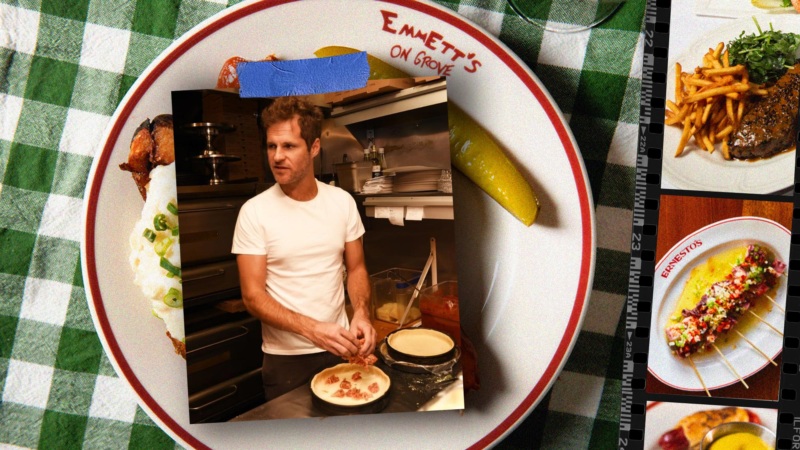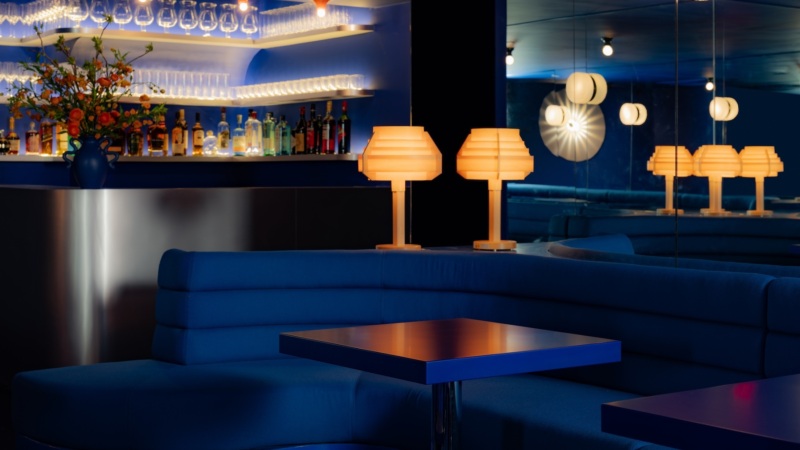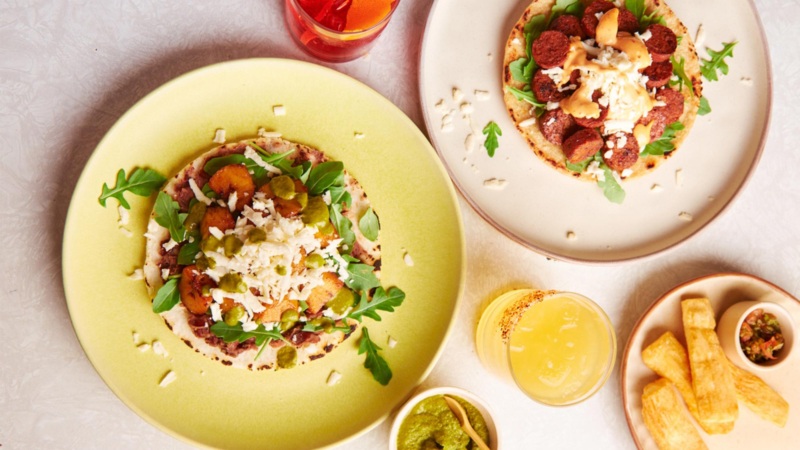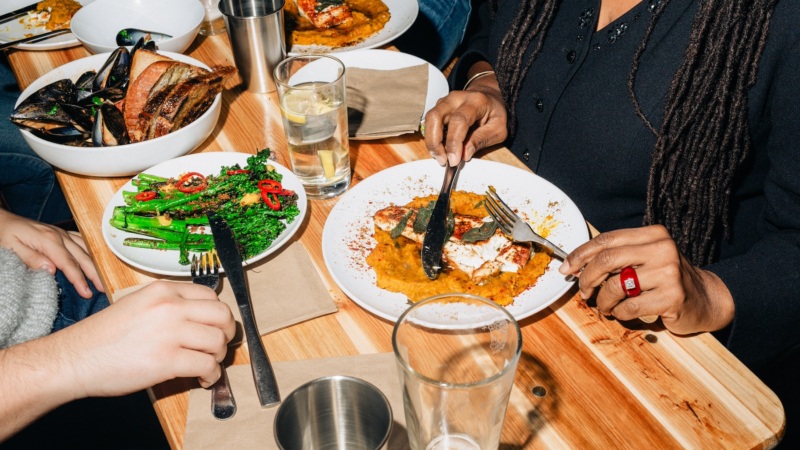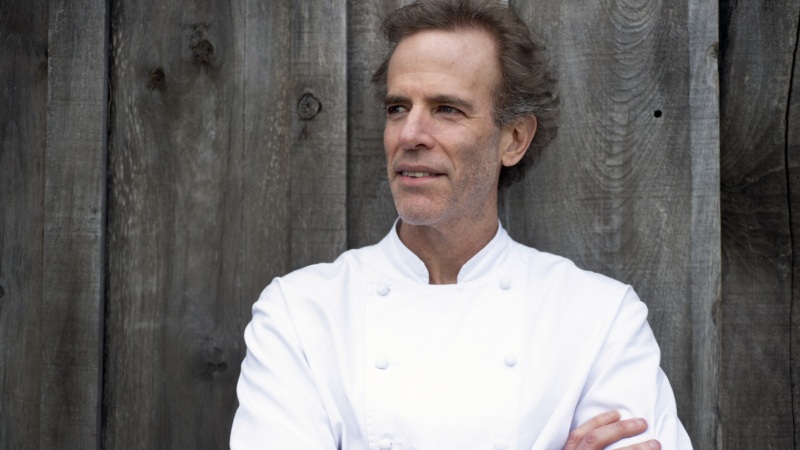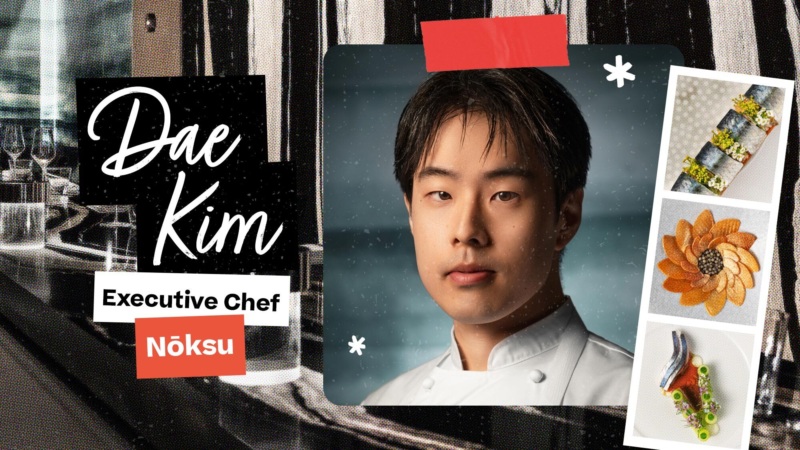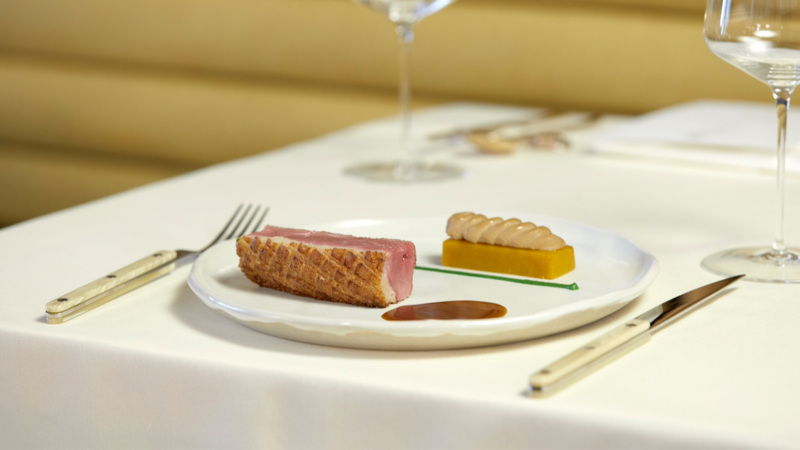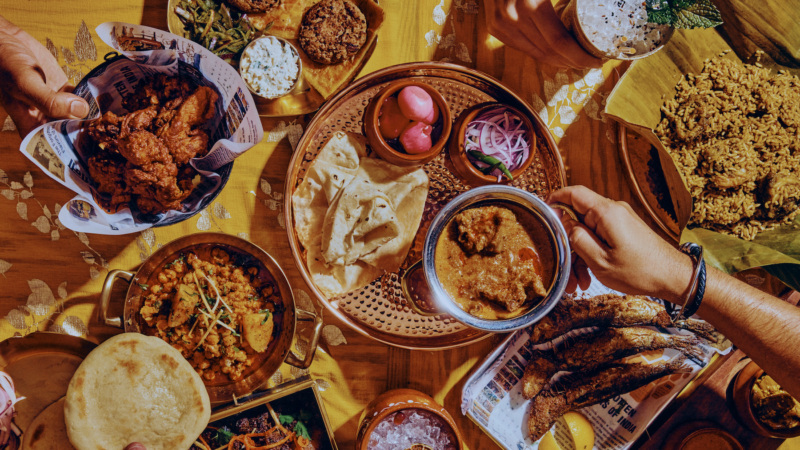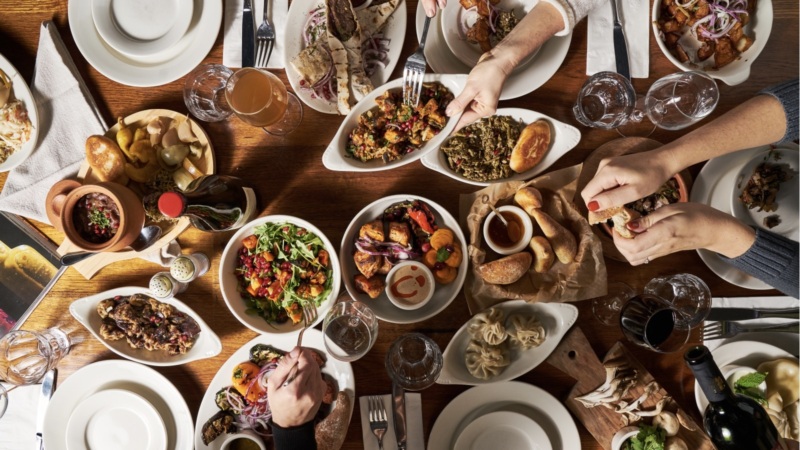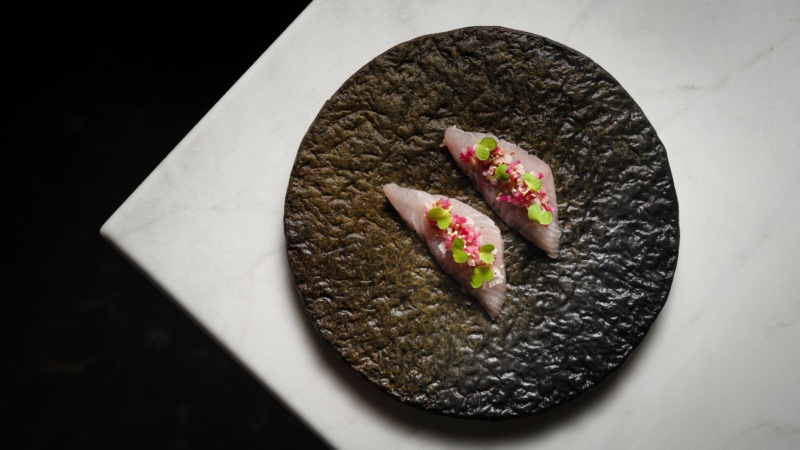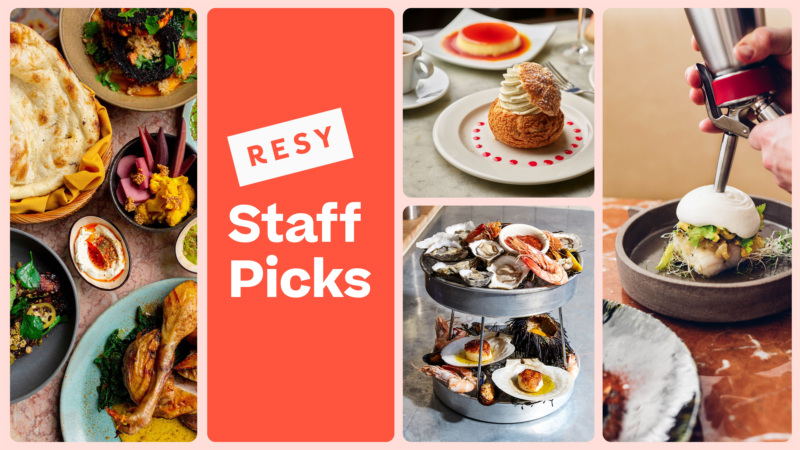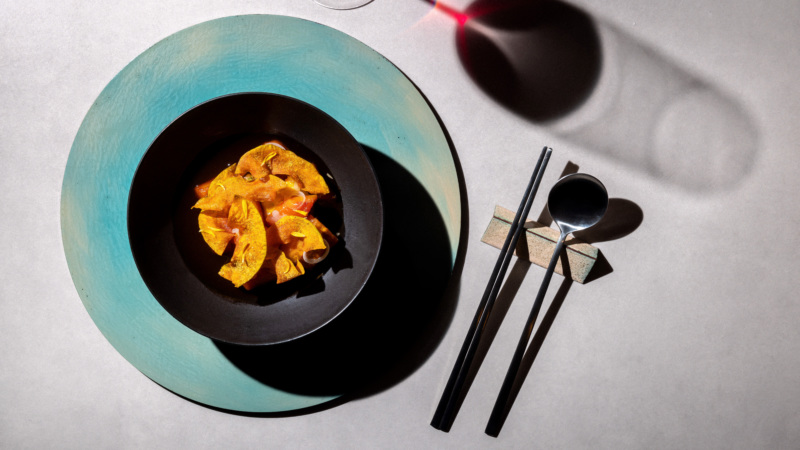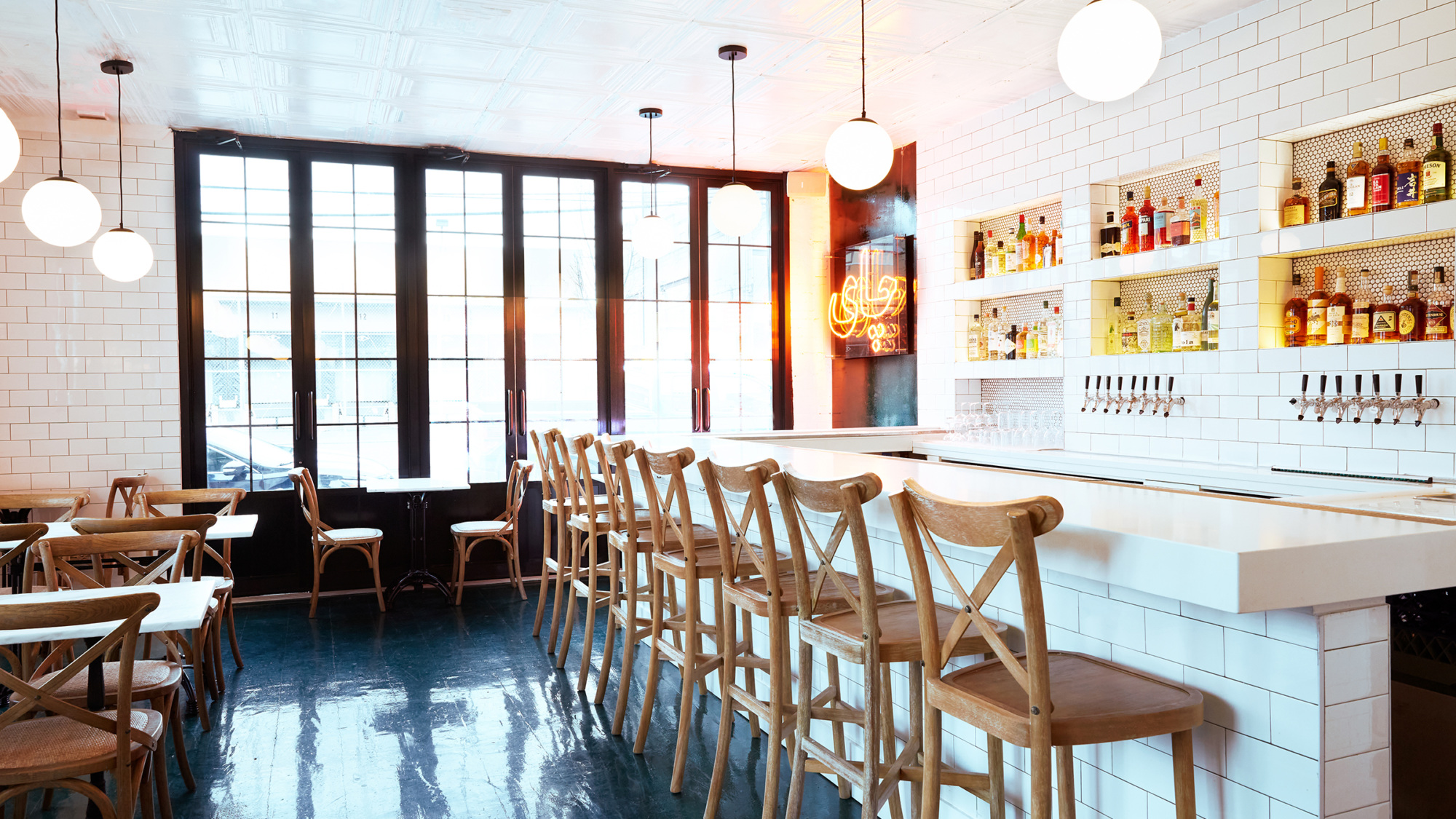
Five Things to Know About Eyval, Now Grilling in Bushwick
Before you go to a restaurant, what do you want — or need — to know most? In our series, The Rundown, we’re sharing all the essentials about newly opened (as well as some of your favorite) restaurants.
Today we’re turning our attention to Eyval, a modern Iranian restaurant from chef and owner Ali Saboor, which debuted in Bushwick, Brooklyn, in late March. Formerly the chef at critically acclaimed Sofreh, this is Saboor’s own project, but he hasn’t strayed far from his old team. Nasim Alikhani, the owner of Sofreh and her husband, Akis Petroulas, are investors in Eyval and Sofreh Cafe has been serving tea, sweets, and fresh-baked breads in an adjoining space since last fall.
At Eyval, Saboor offers New Yorkers a perspective on Iranian cooking that’s rooted in tradition but forward-thinking, and rarely found in this corner of the U.S. The team is serving only dinner for the moment, but Saboor has plans for brunch, lunch, and late-night service that will allow guests to linger over tea, cocktails, or shots of arak.
Here’s everything you need to know.
1. Eyval has been a long time coming.
Born Tehran in the same year at the Iranian Revolution, Saboor moved with his family in 1990 to southern California, where he got his first job in the industry: an after-school gig at his aunt’s Persian restaurant, The Persian Garden, in Orange County. He bussed tables, hosted a bit, and jumped on the grill when the chef wasn’t looking. “I said I’d never work in a restaurant again,” Saboor jokes. “And here I am, some 30 years later.”
With the Sofreh team’s backing, the lease for Eyval was signed before the pandemic. But, with the city shut down, “things were a little slow,” Saboor notes. He used the lull to travel to Iran with Alikhani, his first trip back since his family left. “It wasn’t just so much a research trip,” he explains. “[In] Iran, the people are under sanctions; it’s a hard life over there. I definitely didn’t go there just to eat and walk around and enjoy myself. It was really a chance to see the place [where] I was born and … [to] reconnect with my roots a bit and really experience the culture.”
- How Sofreh’s Nasim Alikhani Honors Iranian Cooking Traditions, In Five Dishes
- Welcome to a Glorious Era of Street Food. You’ll Find It In Restaurants.
- At Harlem’s Clay, A Spotlight on the Wines of Spain and Italy
- Mike Solomonov Is Back In Brooklyn. He Brought Laser Wolf — And An Appetite.
- 20 Questions With Baba Cool’s Gabriella Mann
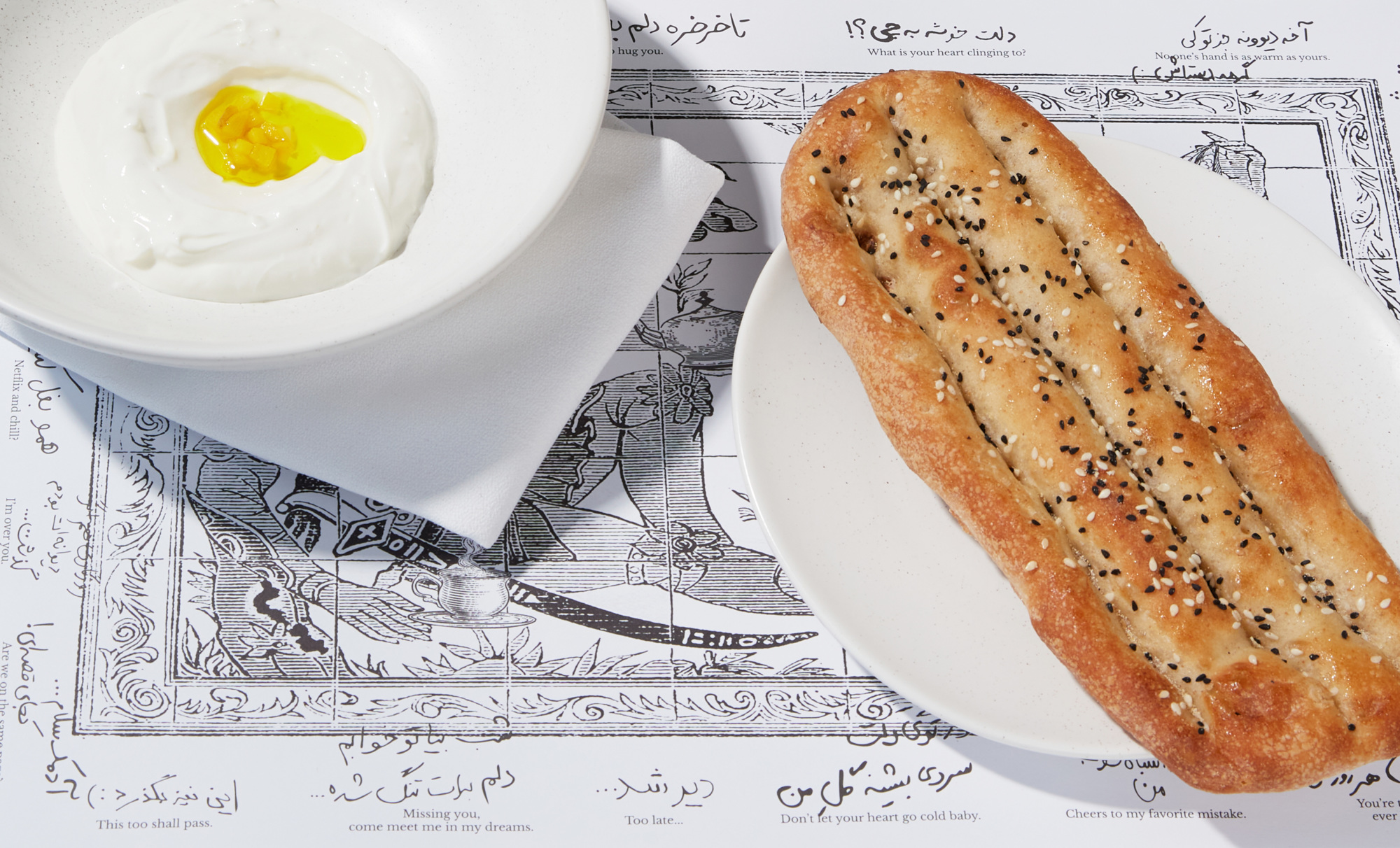
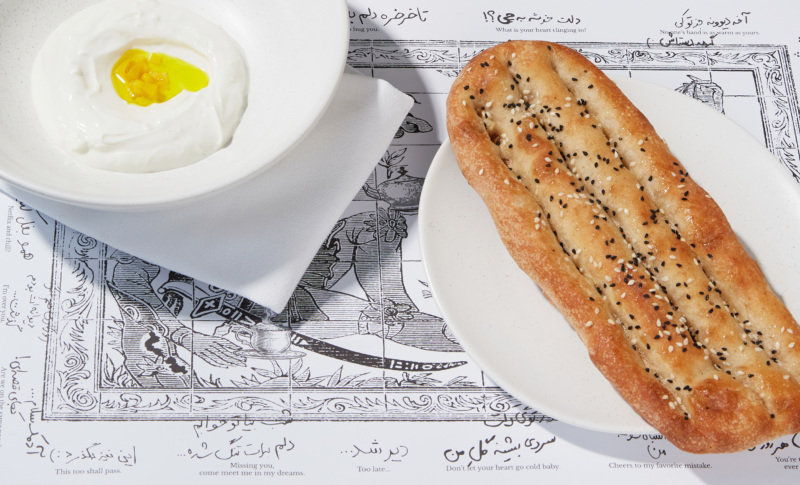
2. This is not Sofreh Bushwick.
Eyval, which means “right on” in Farsi, is more like the rebellious younger cousin. It’s “a little more youthful, a little more risk-taking, a little more season-driven,” Saboor explains. The bar takes center stage in the space and the soundtrack, at least for the moment, is made up of 1970s Iranian pop songs. It’s also a place where Saboor hopes friends will throw back shots of arak and snack on kebabs late into the night.
One thing that did transfer from Sofreh is the exceptional breads for which the restaurant is known. Freshly baked lavash and barbari, topped with nigella seeds, can be dipped into a fava bean borani made with strained yogurt and dill, or picked up to go at Sofreh Cafe. Saboor’s team is also working on a loaf with turmeric, cumin, and dates.
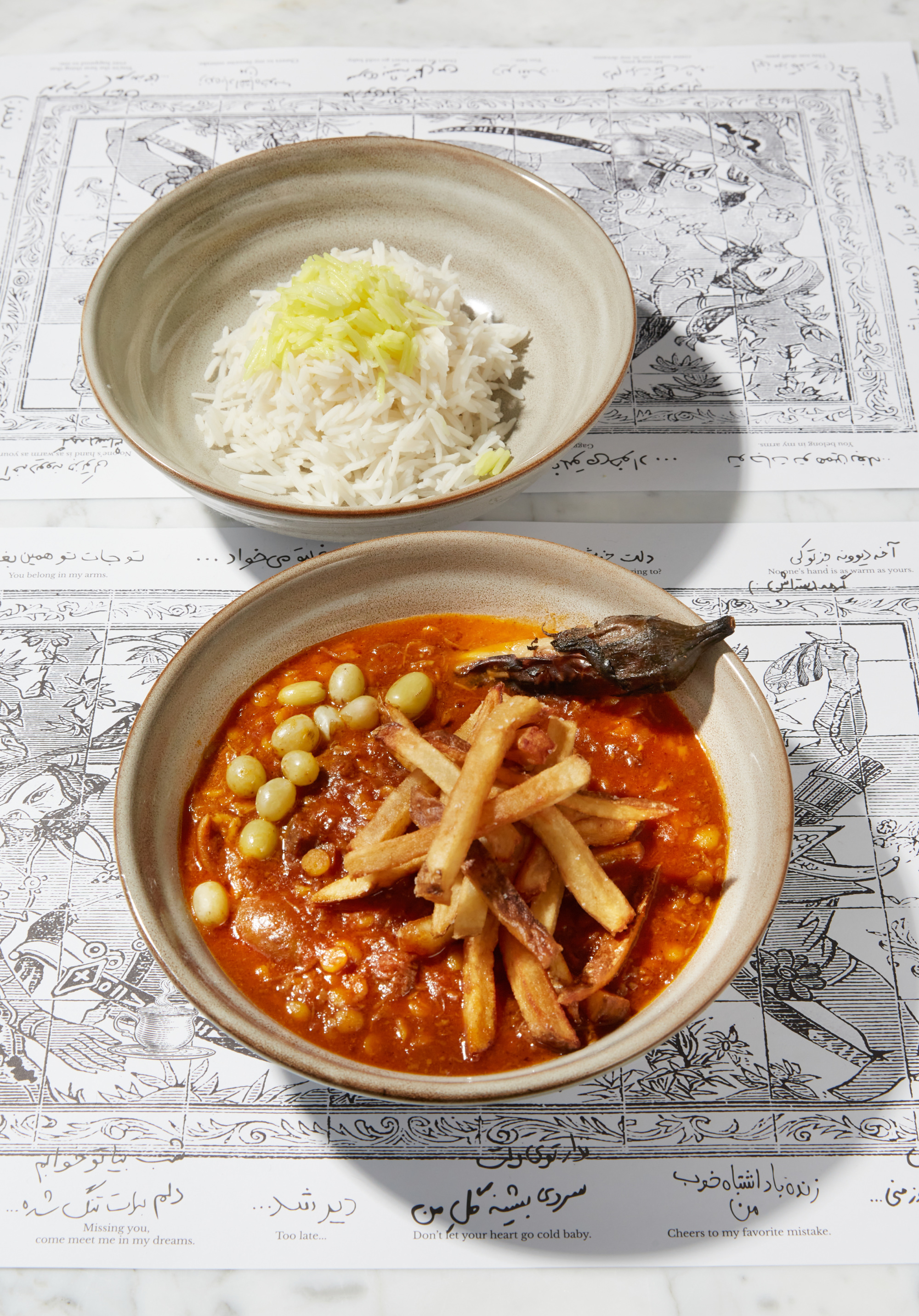
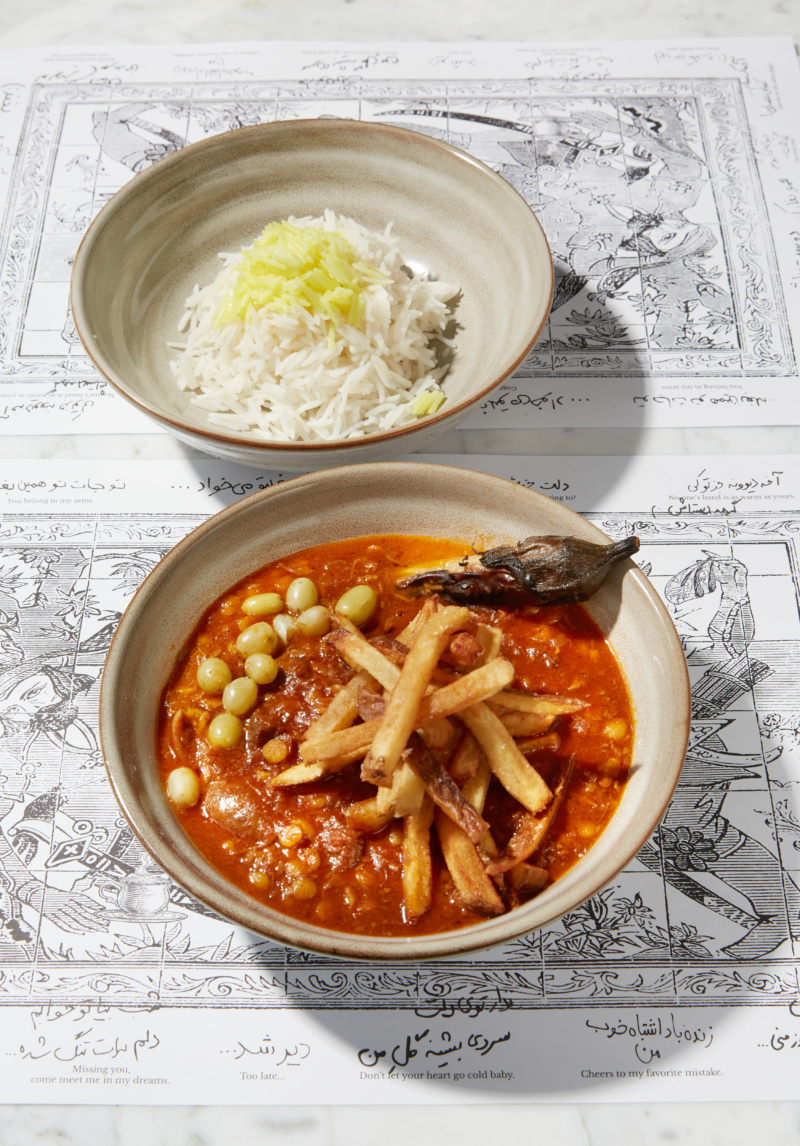
3. Saboor is (carefully) pushing the envelope.
“Is a cuisine defined by a set of dishes that have been in the works for hundreds of years … or is the cuisine defined by a set of ingredients?” Saboor contemplates aloud. At Eyval, he wants to push the cuisine forward while honoring tradition. Case in point: He’s deconstructed dishes like the iconic stew ghormeh sabzi, sometimes called the national dish of Iran. Instead of stewing meat, beans, and herbs together, Saboor braises bone-in veal shank on its own and adds the herb-laden sauce with beans to the meat just before serving.
Saboor’s prized possession in Eyval’s kitchen is a wood-fired grill. “Everything tries to hit the fire at some point,” he says, including the chicken in his fesenjoon, which is singed and then served in a pool of tangy pomegranate and walnut sauce.
He also looks to other cuisines like Filipino cooking, admiring how chefs have updated classics, but notes that those shifts take years. With few Iranian restaurants in the city and a cuisine that’s centuries old, he plans to walk this line carefully and slowly, starting with his take on traditional dishes. But, he adds: “As time goes on, as me and my team get to learn more about Iranian food and dig up old dishes and regional dishes, we [can] kind of push what people think of as Iranian food without going too far. So, that’s kind of the journey that we’ve started here at Eyval.”
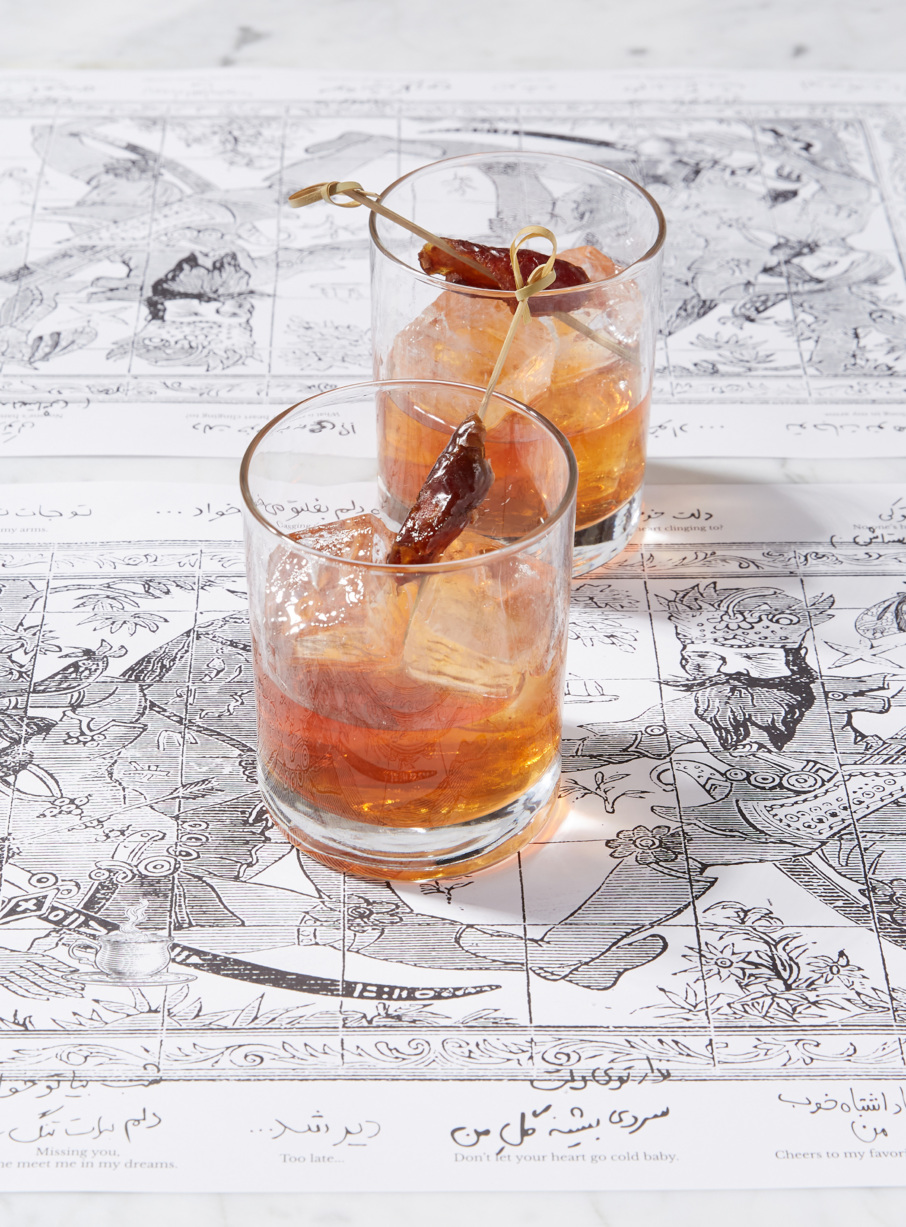
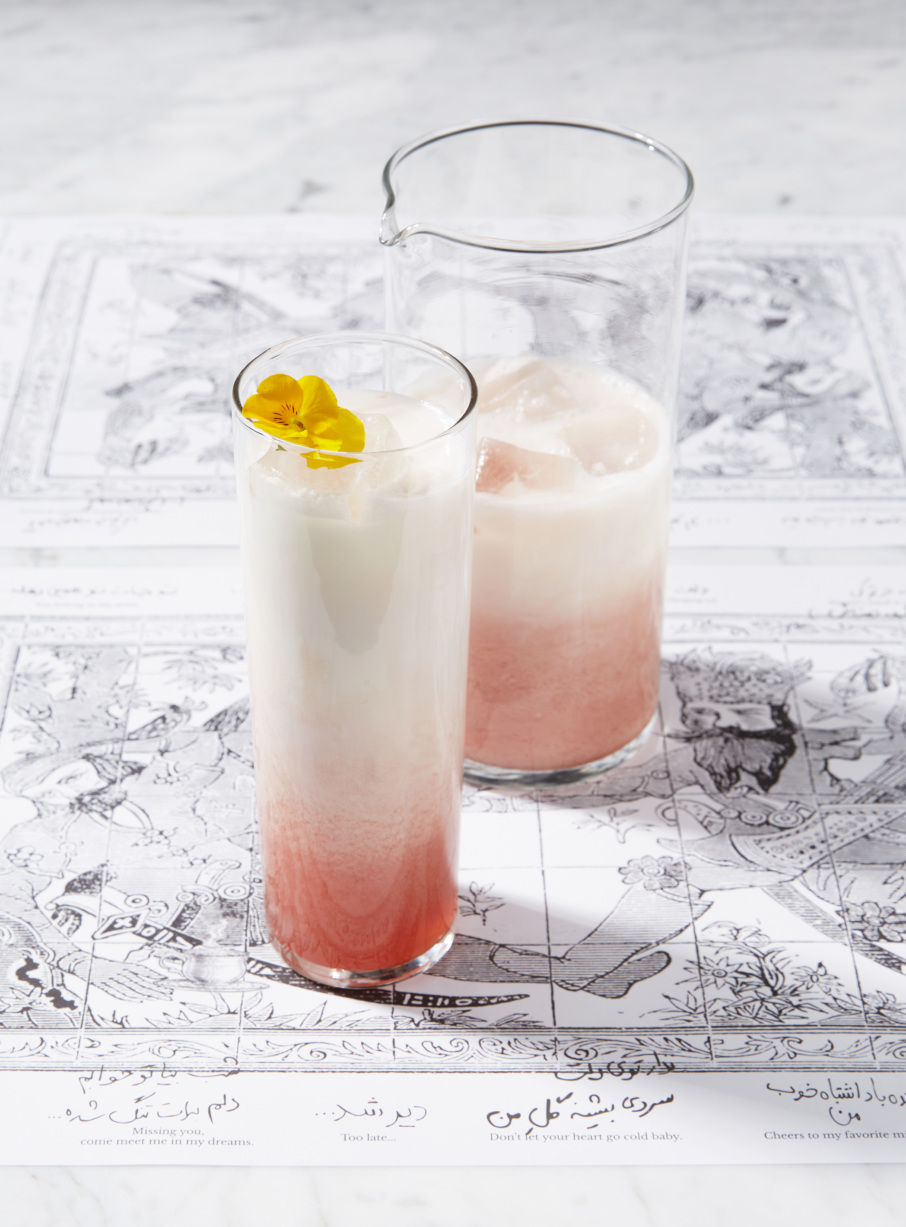
4. Do not sleep on the drinks.
Billy Nichols, who previously worked at Vinegar Hill House and Faun, is playing double duty at Eyval as general manager and bar director. Alcohol is outlawed in Iran, so there was no historic cocktail tradition for Nichols to draw on as he developed the bar program. Instead, Saboor has introduced him to Iranian flavors that he’s incorporated into his own takes on classic cocktails. Persian limes stand out in a limoo margarita with grapefruit, mezcal, Cointreau, and an Aleppo pepper salt rim; rosewater and cardamom are added to a gin and tonic; and saffron brightens up a martini.
There are also sharbats, or alcohol-free Iranian sodas, on the menu. For the moment, they come in mint-cucumber and sour cherry, but Saboor says he hopes to add other non-alcoholic beverage offerings, like one made with honeydew, and another called khak shir, a summertime drink with rosewater and small seeds that Saboor likens to chia seeds.
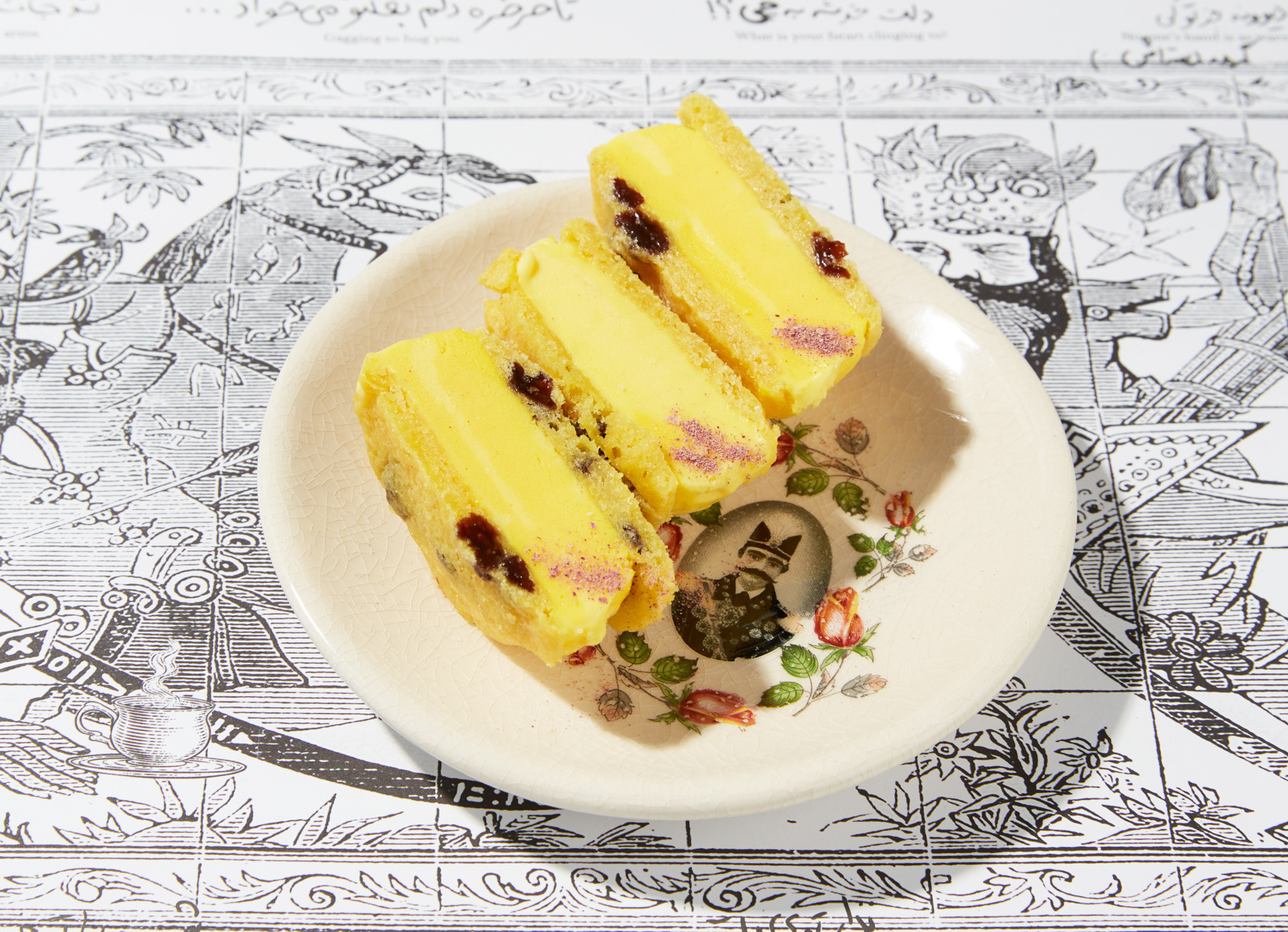
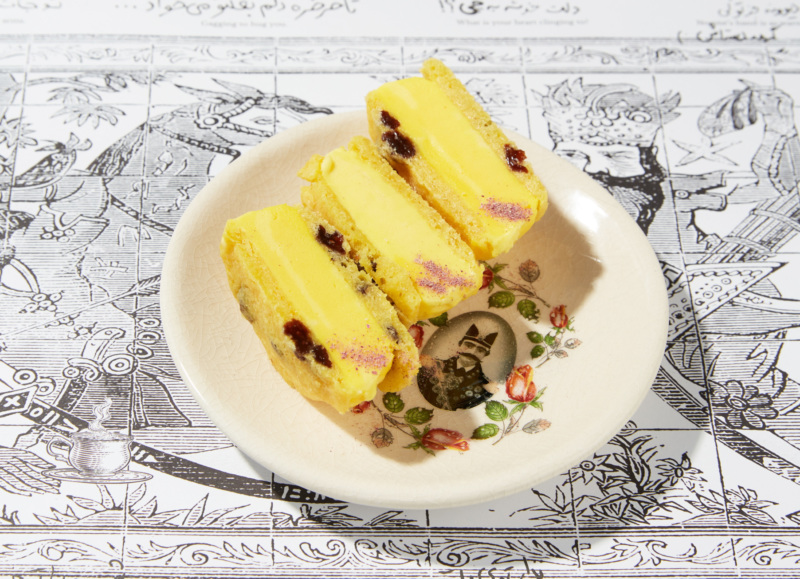
5. There’s much more to come, including brunch and late-night service.
Saboor wants Eyval to be a place where guests hang out at all hours. “The whole idea behind opening in this location was to have one big space where we keep [both] Sofreh Cafe open and keep Eyval open,” he says. Sofreh Cafe is already open from 10 a.m. to 10 p.m. five days a week. He’s hoping to debut brunch at Eyval this summer, with dishes like eggs with yogurt and turmeric served with bread from the bakery. The team is already talking to dairy producers to see if they can make sarshir, a clotted cream, for the midday meal.
A late-night menu, inspired by jigar, or grill stands, that Saboor visited in Iran, is also in the works. Expect kebabs, grilled livers, hearts, and mushrooms on bread topped with sumac onions. In Saboor’s words: “It’s my version of a late-night cheeseburger.”
Eyval is open from 6 to 10 p.m. Wednesdays through Sundays.
Devra Ferst is a Brooklyn-based food and travel writer who has contributed to The New York Times, Bon Appetit, Eater, NPR, and numerous other publications. Follow her on Instagram. Follow Resy, too.



